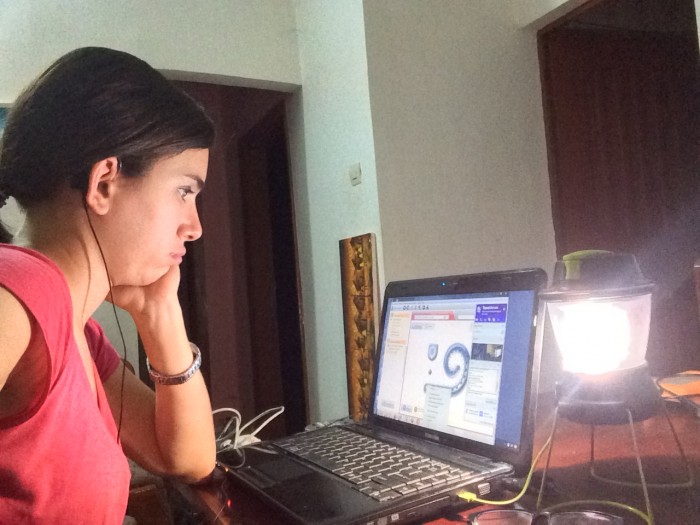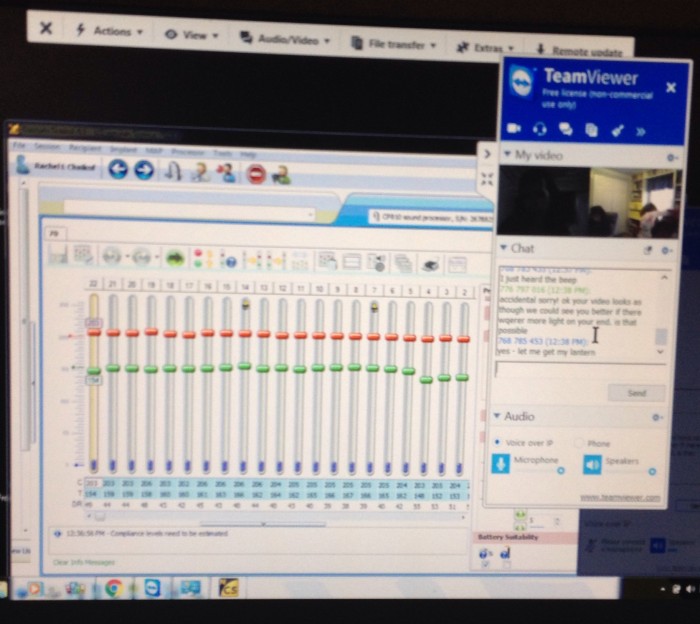September 17th, 2016 by Rachel | Tags: Cochlear Implant, Hearing Loss, Peace Corps | 4 Comments »
When I first received my Peace Corps invitation to serve in Cameroon over two years ago, one of my first reactions was, “Cameroon? But there is no cochlear implant center there? Did Peace Corps really say it’s OK for me to serve there? If they say so, then no problem. I can just get remote MAPping.” I had recalled reading an article about Bill Shapiro, an audiologist at New York University, doing remote MAPping with a cochlear implant recipient in Uganda. In Cameroon, there is absolutely no support for cochlear implants. While I could travel to South Africa or back to the US if my hearing were to get bad and need tuning up, I did not need to do it.
Earlier this year, I found that I was not hearing well in my left ear, and I needed a tune up, which is known as MAPping. So, I contacted my audiologist in Boston, Marilyn Neault. We arranged a day and time for a MAPping session. When the day came, in my home in Cameroon I pulled out my computer, connected to the internet, and opened up the MAPping software. I had the cable to connect my sound processor to the computer. I connected my sound processor to the computer. 6,000 miles across the Atlantic Ocean, in Boston, Marilyn was on her computer and through the TeamViewer software, she took over my computer and MAPped me as if we were in an audiology room together in person. She went through each electrode and checked the comfort levels, which means checking the loudest sound I could tolerate, and checked the thresholds, which means checking the softest sound I could hear. After the MAPping was done, we did a speech test via webcam. To ensure that I get the maximum sound quality, I used my Dr. Dre headphones. If Marilyn noticed I was missing a certain sound, she went back and tweaked my MAP.
The MAPping session was finished in a couple of hours. After completing the MAPping, I went on with my life in Cameroon, hearing much better.
Remote MAPping, which is also known as telepractice, is currently not done regularly. I hope this blog post can encourage more audiologists to pursue remote MAPping so that we can open up opportunities for cochlear implant recipients who aspire to join the Peace Corps and work in developing countries that do not have cochlear implant centers. The internet has come a long way in the past year in Cameroon. High speed internet is now readily accessible and affordable. I imagine the situation for internet access is similar across the continent of Africa and other parts of the world.



4 Comments
Rusty
September 19, 2016 at 5:38 am
Well Rachel this is so awesome thank you so much for sharing
Molly C C
September 19, 2016 at 4:25 pm
LOVE THIS TECHNOLOGY . ??????
elaine talel
September 20, 2016 at 1:36 am
If this can be done US-Cameroon, then it certainly can be done within the same country to make life easier for implant users and avoid hospitals at the same time!!! Thanks Rachel for sharing and good luck changing the world through the Peace Corps too! You are fabulous!
Varda
April 25, 2020 at 1:34 am
I remember reading this when you were in the Peace Corps! So amazing, really! So, if someone needed MAPping, now, during the Coronavirus pandemic, could this be done for them?? I hope so!!